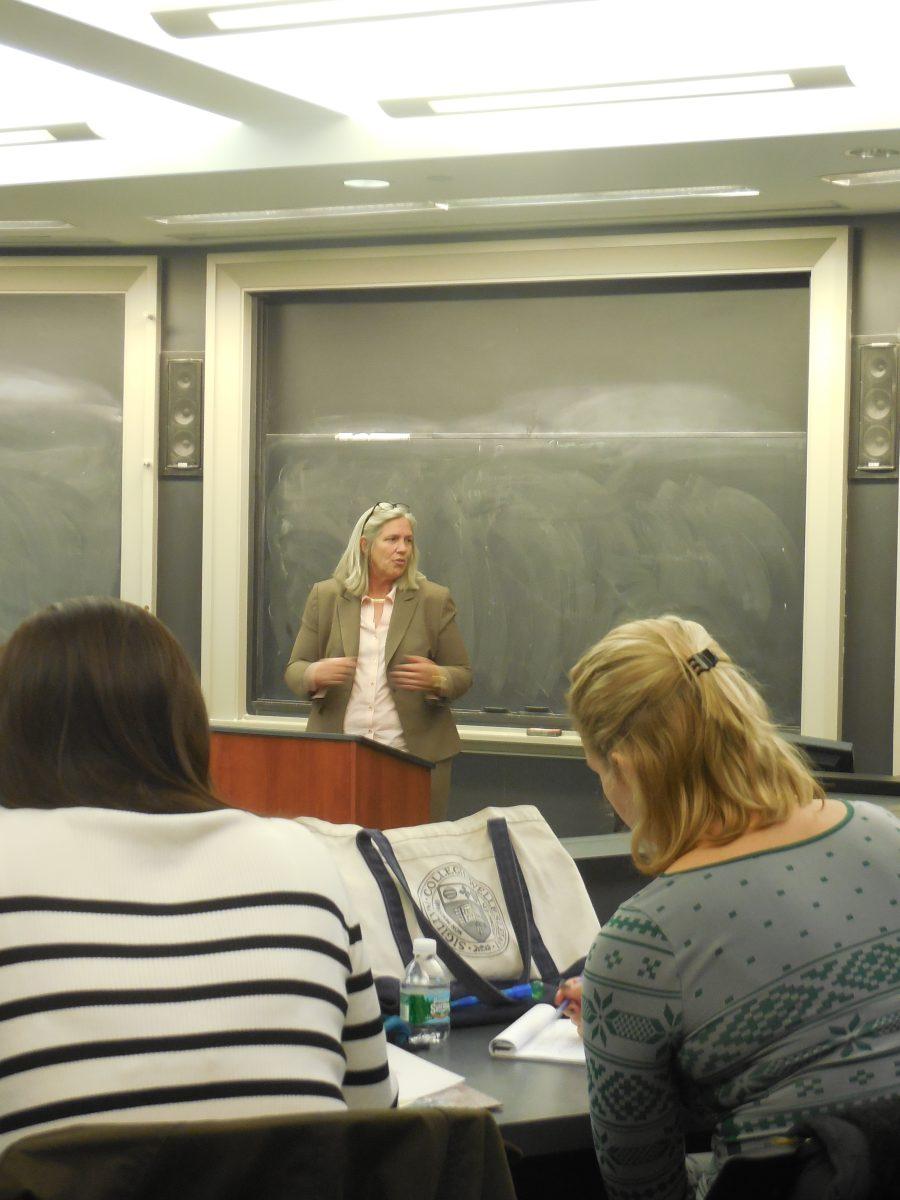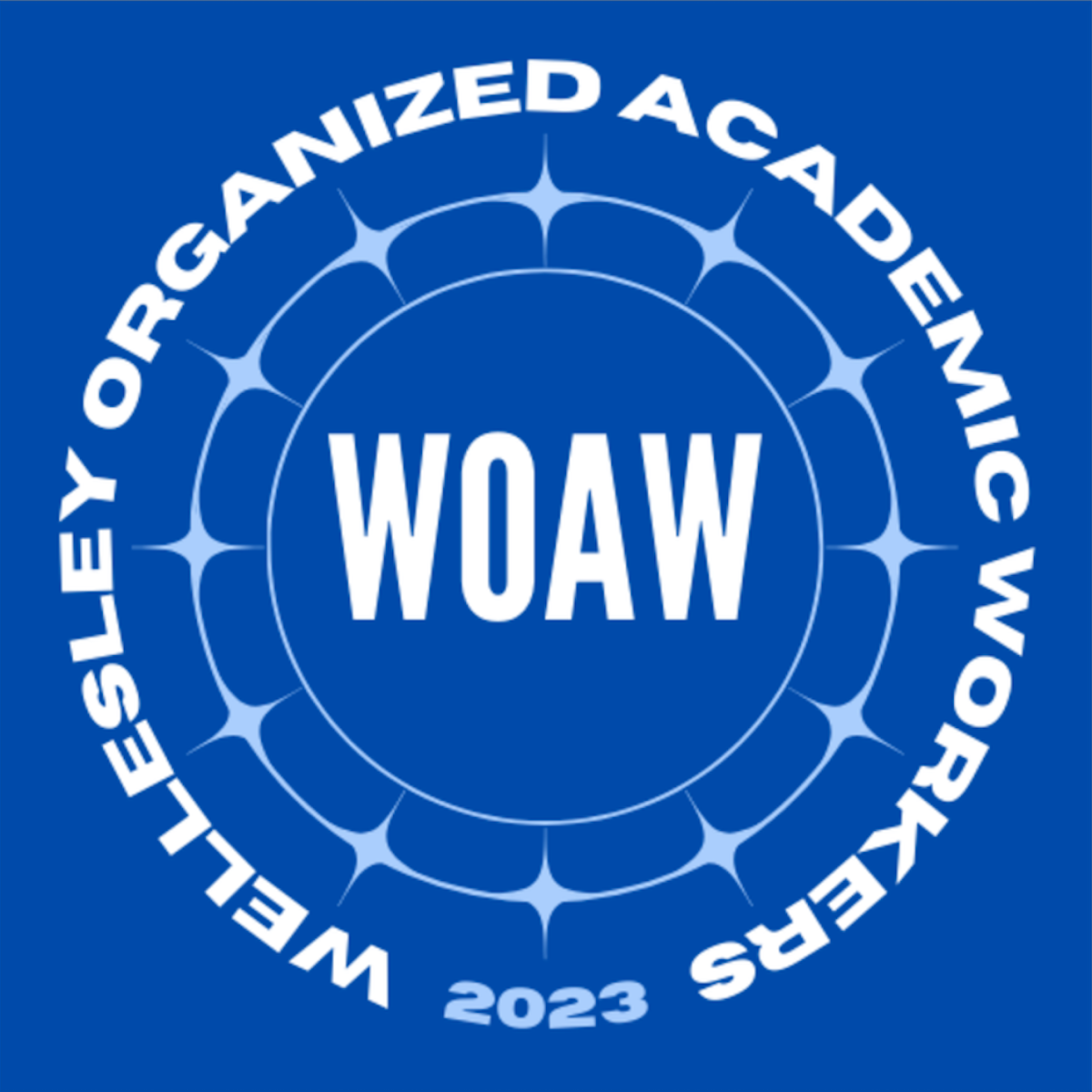The political science department hosted a lecture by Sue Gordon, Deputy Director of the National Geospatial Intelligence Agency (NGA), which gave students both a perspective on high-level government work and the chance to ask Gordon questions.
Gordon’s talk covered three main points: her experience graduating from Duke University and transitioning into a government career after getting a zoology degree, career advice for students and insights on what it is like to work in both the NGA and within the larger context of national Intelligence Agencies.
To make her approach more relatable to Wellesley students, Gordon addressed her similar liberal arts experience at Duke University and the lasting benefits from this experience.
“One of the great benefits of the liberal arts education is that it teaches you how to think. I learned how to think at Duke. And that ability to think coupled with the craft that you’re going to develop over the course of your career is going to take you to a lot of places,” Gordon said.
Gordon initially started with writing reports for the government, using her scientific knowledge to make technical reports understandable to the public. She later transitioned into telemetry, the study of analyzing data from spacecrafts, and began building a spacecraft.
At this point in her career, Gordon had moved away from an academic position and into a management position. She peppered her talk with advice to students, including how to know when to take a leadership position.
“People will say, ‘Do you want to be an expert?’ or ‘Do you want to go into management? ‘Do you want to stay in academia?’ or ‘Do you want to lead other academics?’ You will go into management when your vision exceeds the resources that you personally possess,” Gordon stated.
Gordon began her management career with various positions with the CIA. She found the government fascinating.
“National security and the government are interesting because the problems are big, and the resources are big, and so when you have big ideas the resources will be available. People will come and work with you,” Gordon explained.
To this end, Gordon believes that one of her major achievements with the CIA was developing the In-Q-Tel corporation, which partners with and provides funding to tech companies which then support government intelligence agencies.
In the next part of her presentation, Gordon outlined some of the purposes of her current agency. Put broadly, the NGA supplies the information and analysis that provides the context and content of national and international issues. This often includes cartographic information that can be used either in the present as combat support or to predict future events.
Although Gordon has worked with two different government organizations, she sees the various intelligence agencies such as the NGA and CIA as increasingly cooperative rather than competitive, referring to the different organizations jointly as the Intelligence Community.
“A lot like Ivies, they each have their own personalities. I have never seen them act as a single agency more than now. What’s exciting about the intelligence community now is that it does have a particular ethos to each community but the collaboration is good,” Gordon explained.
As a director in such a high position, Gordon was also able to offer unique insights to students on what it is like to balance raising a family and having a career. Gordon took a seven year leave to raise her family and then successfully returned to her career.
“I couldn’t be as great a mom as I wanted to be and be as great an intelligence officer as I wanted to be, so I decided to do the one that only I could do.” Gordon said, to explain her choice to leave. However, she also admitted, “It was really scary [to leave], because can you tell I love my work? It felt like walking away and giving up all I had achieved.”
For Rebecca Farkas ’17, the fact that Gordon was able to return to the field was a mark of her influence.
“The fact that she was able to take a seven year leave was probably the most surprising thing. That she was so well respected that they were willing to take her back in after a seven year leave,” Farkas said.
She attended the talk because it had something to do with her area of interest for a career.
“I’m a linguistics major, which is related to data analysis. One of the things I’ve been looking into for a career is something with intelligence. This is a different agency than I was looking into, because it’s more geospatial it’s not quite as related specifically to what I am doing with linguistics, but it was very interesting,” Farkas said.
Marilis Dugas ’16, a political science major, also found the lecture interesting as someone who would like to work in the area of intelligence.
“Getting to hear from someone like Sue who is so honest and dynamic is very helpful! Whenever we get the chance to speak to someone in that field, it really helps us understand the different options that are out there in the intelligence community and the different ways to get there,” Dugas said.









